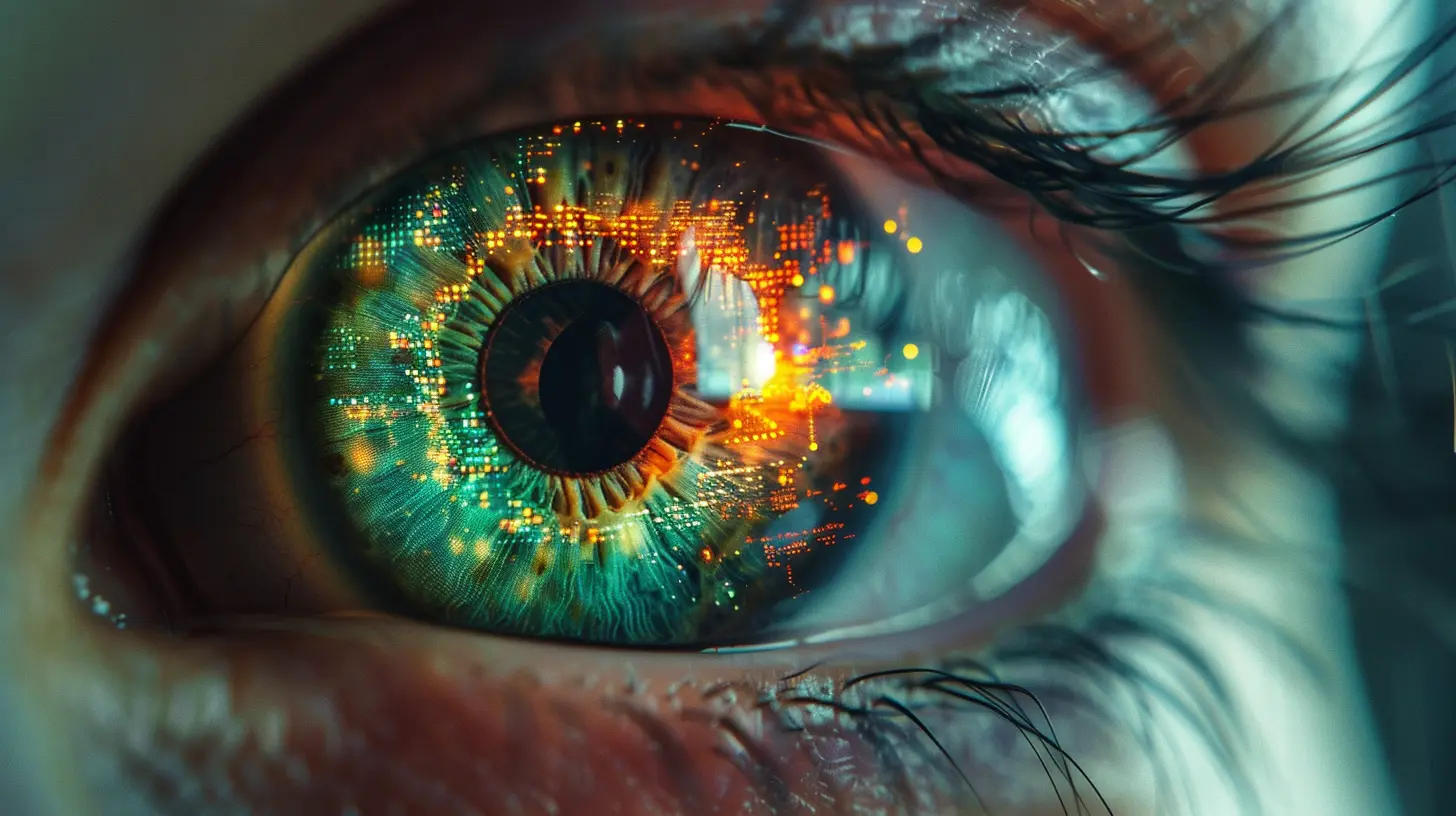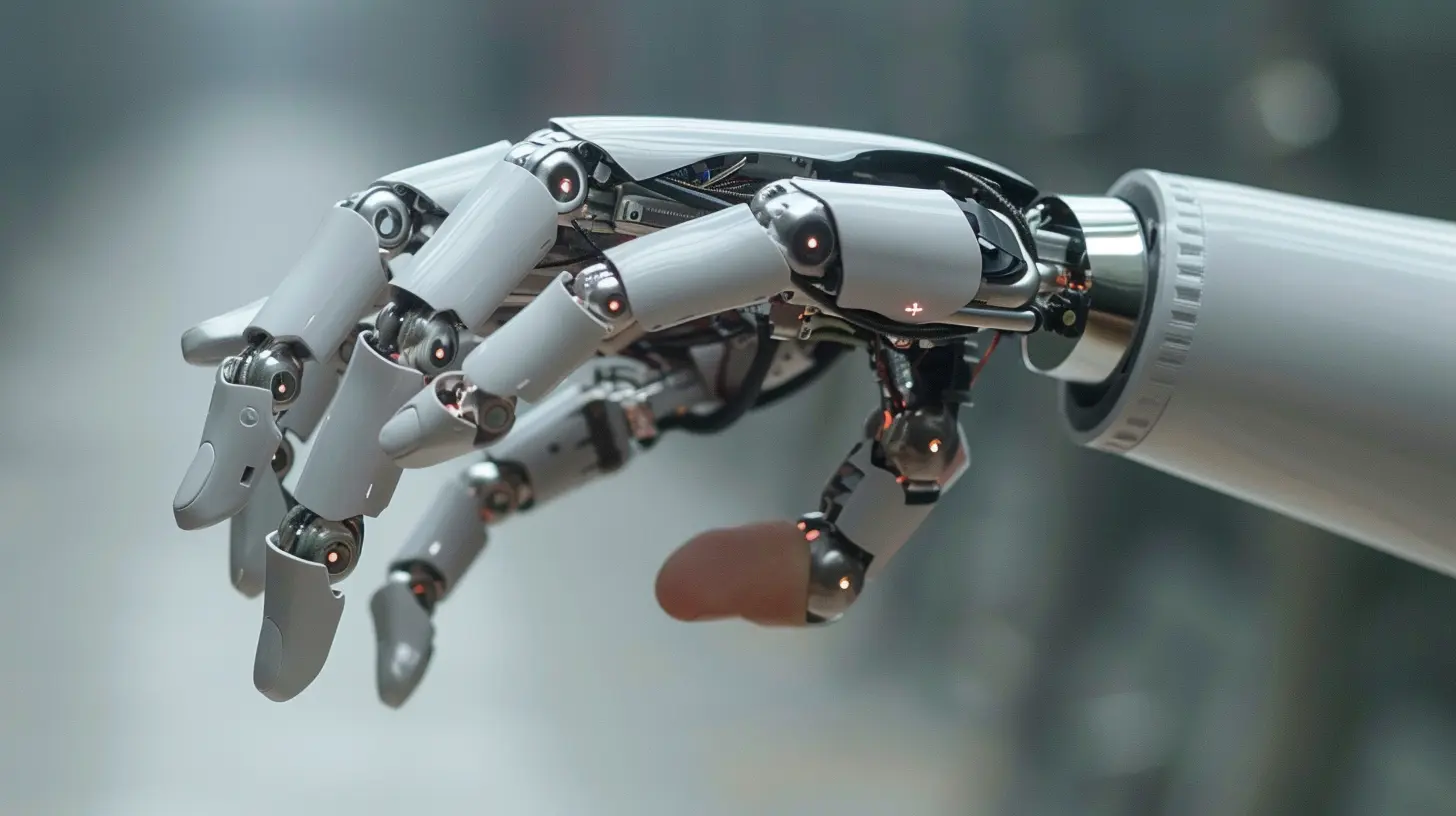AI and the Future of Privacy: Ethical Impacts of Predictive Analytics
5 September 2025
Artificial intelligence (AI) is revolutionizing the way we interact, work, and even think. With the rise of predictive analytics, AI can now anticipate our actions before we even make them. But there’s a catch—this incredible power comes with serious ethical and privacy concerns.
What happens when machines know more about us than we do? How far should companies go in using our data to predict our future behaviors? And more importantly, where do we draw the line between convenience and surveillance?
In this article, we’ll dive deep into the world of AI-driven predictive analytics and its impact on our privacy. Let’s break it down. 
Understanding Predictive Analytics
Predictive analytics is the ability of AI to forecast future events based on historical data and patterns. It’s like having a crystal ball, but instead of magic, it runs on algorithms and massive datasets.This technology powers everything from Netflix recommendations to fraud detection in banking. While it makes life more seamless, it also raises red flags regarding privacy and ethics.
Imagine a world where AI predicts your next move—what you’ll buy, where you’ll travel, or even when you might get sick. Sounds convenient, right? But what if this data falls into the wrong hands or gets used against you? That’s where the ethical dilemma begins. 
The Privacy Trade-Off: Convenience vs. Surveillance
Let’s be honest—we love convenience. We willingly hand over our data for the sake of personalized experiences. Think about it: Every time you use Google Maps, shop online, or interact with social media, you feed AI with valuable insights about your habits.But here’s the problem. The more data we share, the more vulnerable we become. Companies are not just collecting basic information; they are building detailed digital profiles that can predict our thoughts, emotions, and behaviors.
- Your search history reveals your interests
- Your social media activity shows your personality
- Your purchase habits indicate your financial behavior
Now, imagine a scenario where insurers use this data to predict potential health risks and adjust your policy costs. Or employers analyze this information before hiring a candidate. Feels invasive, right? That’s the dark side of predictive analytics. 
Major Ethical Concerns in Predictive Analytics
While AI can transform industries, it also presents a minefield of ethical challenges.1. Informed Consent: Are We Really in Control?
One of the biggest concerns with predictive analytics is the lack of informed consent. Most users have no idea how much data they’re actually sharing or how companies are using it.Sure, we tick “I agree” on privacy policies, but let’s be real—no one reads those long, confusing documents. Companies bank on this ignorance, making it easy to collect and exploit our personal data.
2. Bias and Discrimination in AI Algorithms
AI learns from historical data. If that data is biased, the predictions will be biased too. And this can have serious consequences.For example, predictive hiring tools have been found to discriminate against certain demographics based on past hiring trends. Similarly, predictive policing has led to racial profiling and unjust law enforcement practices.
Without strict regulations and oversight, AI can reinforce existing social inequalities rather than eliminating them.
3. Data Security Risks: Who’s Protecting Our Information?
With the increasing amount of personal data floating around, security breaches are a major concern. Predictive analytics relies on vast datasets, and if that data is hacked, it can lead to identity theft, financial fraud, and even blackmail.Take Facebook’s Cambridge Analytica scandal as an example. Millions of users’ data were harvested without consent and used for political influence. If something like this can happen with social media, imagine what’s possible when AI-driven predictions dominate every aspect of our lives.
4. The Right to be Forgotten: Can We Wipe Our Digital Footprint?
In a world where every action leaves a trace, the right to be forgotten has become more important than ever. Should individuals have the ability to erase their digital history?Google’s "Right to Be Forgotten" policy allows users to request the removal of personal information from search results. But predictive analytics doesn’t just store past data—it continuously learns and adapts. Even if you delete your history, AI might still remember patterns about you based on past interactions.
Should companies be required to delete predictive models based on personal data? This is a growing debate with no clear answer. 
The Role of Governments and Regulations
While tech companies are leading the AI revolution, governments around the world are scrambling to regulate it.1. GDPR and Data Protection Laws
The General Data Protection Regulation (GDPR) in the EU is one of the strictest privacy laws globally. It requires companies to clearly inform users about data collection and gives individuals the right to access or delete their information.But here’s the catch: Not all countries have strong privacy laws. In places with weak regulations, companies can exploit data with little to no accountability.
2. AI Ethics Committees and Oversight Bodies
Many governments are pushing for AI ethics committees to oversee how predictive analytics is used. These committees work to ensure that AI doesn’t cross ethical boundaries.Some experts argue that self-regulation by tech companies isn’t enough. Without strict enforcement, businesses might prioritize profit over privacy.
What Can We Do to Protect Our Privacy?
While laws and regulations are crucial, individuals also need to take proactive steps to safeguard their privacy.1. Review Privacy Settings Regularly
Most platforms allow you to customize privacy settings. Take the time to review app permissions and limit data-sharing wherever possible.2. Use Privacy-Focused Tools
Opt for privacy-first alternatives like DuckDuckGo (instead of Google) or Signal (instead of WhatsApp). These tools help minimize data exposure.3. Be Mindful of What You Share Online
Think twice before posting personal information on social media. Even seemingly harmless details can be used to predict sensitive data about you.4. Support Ethical AI and Transparent Companies
Choose to do business with companies that prioritize user privacy and transparency. Pressure businesses to be more ethical by voting with your wallet.Final Thoughts
AI and predictive analytics are here to stay, and while they bring immense benefits, they also introduce serious privacy challenges. The question isn’t whether AI should analyze our behavior, but rather, how far it should go.At the end of the day, the future of privacy depends on a balance between innovation and ethics. Companies, governments, and individuals all have a role to play in ensuring AI serves humanity, not exploits it.
So, next time you enjoy a perfectly tailored recommendation or see an eerily accurate ad, ask yourself—how much of your privacy are you willing to trade for convenience?
all images in this post were generated using AI tools
Category:
Ai EthicsAuthor:

Ugo Coleman
Discussion
rate this article
1 comments
Taryn Matthews
This article strikes a perfect chord! As AI technology evolves, balancing innovation with privacy feels like walking a tightrope. It’s fascinating yet a bit nerve-wracking to think about how predictive analytics will shape our lives. Here’s hoping for ethical frameworks that keep our data—and us—safe!
September 7, 2025 at 3:59 AM

Ugo Coleman
Thank you! You’ve captured the essence of the challenge perfectly. Striking that balance is crucial for a safe and innovative future.


